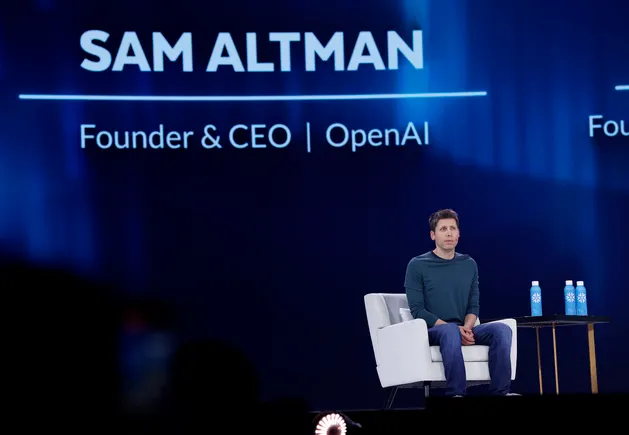Dive Brief:
ChatGPT creator OpenAI has appointed the former finance chief of xAI, Mike Liberatore, to the role of business finance officer (BFO) for AI infrastructure, effective Tuesday, a company spokesperson confirmed to CFO Dive via email. Liberatore will report to OpenAI CFO Sarah Friar in the new role, and will “focus on supporting the team charged with scaling OpenAI’s access to compute,” the spokesperson said.
The move comes after Liberatore abruptly departed from xAI in July after serving only four months as its finance chief — marking the latest in a series of executive leadership changes and departures for the Elon Musk-owned company, according to a Sept. 3 report by The Wall Street Journal citing people familiar with the matter.
While Liberatore may present as a strong hire on paper, it’s worth noting that outside of his stint at xAI, “he may come with a learning curve,” when it comes to AI operations, Shawn Cole, president of boutique executive search firm Cowen Partners said.
Dive Insight:
Liberatore’s hiring at OpenAI is a fresh twist in a growing rivalry between the Musk- and Sam Altman-led companies, as they compete for the top slot in the generative AI market. Altman is the CEO of OpenAI.
The move to OpenAI represents Liberatore’s second role since his departure from Airbnb, where he spent nine years before leaving to take the CFO seat at xAI in April. Liberatore was in his role at the Musk-led xAI for about three to four months, which “raises fit/alignment questions (presumably with Musk),” Cole said in an emailed response to questions.
“Since he jumped so quickly from xAI to OpenAI, it wouldn’t surprise me if something was afoot,” Cole said. “I’d caution employers from leaning into these kinds of tactics, it can make the hiring market unnecessarily frothy.”
In looking at the bigger picture, “AI companies are tilting toward CFOs who can structure capital and tame infrastructure costs, even if they’re not ‘AI-native,’ with more specialized ‘business finance’ roles emerging and faster executive rotations increasing costs and volatility,” Cole said.
While Liberatore may need to bolster his AI-ops experience, on the upside, he brings “heavyweight financing chops…that map directly to OpenAI’s compute/infrastructure spend,” Cole said, for example, helping to lead large debt and equity raises during his time at xAI. In July, the company raised $10 billion in debt and equity, with half of the sum in secured notes and loans while the remainder was sourced through equity investment, CNBC reported at the time.
His tenure at Airbnb also included various strategic financial roles, with Liberatore most recently serving as the homesharing platform’s vice president of finance and corporate development, and previous experiences include stints at SquareTrade, PayPal, and eBay, according to his LinkedIn profile.
Such financial chops will be crucial for OpenAI as it looks to keep pace with constantly accelerating demands for computing power amid a host of other challenges. The ChatGPT operator recently inked a deal with cloud provider Oracle enabling it to purchase $300 billion in computing power over approximately five years — one of the largest cloud contracts to be signed, at a value that currently “far outstrips the startup’s current revenue,” the WSJ reported. Under the deal, OpenAI would need to pay Oracle approximately $60 billion annually for access to the computing power promised under the contract, which is equivalent to electricity produced by over two Hoover Dams or the amount needed to power four million homes, according to the WSJ.
In June, OpenAI reported annual recurring revenues of $10 billion due to ChatGPT growth, nearly doubling the $5.5 billion in ARR it reported in 2024, CNBC reported at the time. The company, which lost approximately $5 billion last year, is targeting $129 billion in revenue by 2029, but it is also anticipating its cash burn will continue to grow — projecting cash burn of $115 billion through 2029, according to a Sept. 5 report by the Information.
As well as looking to balance its growth against its expenses, the Altman-led business is continuing to navigate an ongoing shift to a for-profit entity that has included tense negotiations with its major backer, Microsoft. While OpenAI requires Microsoft’s agreement to complete its shift to a for-profit entity — which it is required to do by the end of the year to avoid losing $20 billion in funding — the companies have butted heads regarding the stake Microsoft would have in the newly-public entity, as well as its level of ownership related to OpenAI’s products, the WSJ reported in June.
On Sept. 11, the two companies announced they had reached a non-binding memorandum of understanding “for the next phase of our partnership” and are working to finalize the terms of a definitive agreement, according to a joint statement posed on OpenAI’s website.

